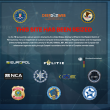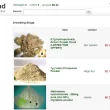DeepDotWeb was the renowned platform that has significantly provided updates and insights into the dark web markets. As a dark web news platform, it has managed to capture the attention of individuals seeking to understand the hidden dynamics of this mysterious realm.
The site mainly aimed to provide reviews, interviews, and another unique perspective in the dark web landscape. Throughout its existence, DeepDotWeb has witnessed both triumphs and controversies.
Before discussing the deepdotweb, let us share its history from its establishment, owner and shutdown. This article will shed light on the minds behind its creation and the evolution of its role in covering the dark web markets.
Founding and History of DeepDotWeb
DeepDotWeb was a prominent news site that reported events within the dark web and its surrounding realms. It offered a comprehensive platform for individuals seeking information on darknet markets, Tor hidden services, privacy, bitcoin, and related news. The site provided knowledge through interviews, reviews, and detailed articles.
The operation of DeepDotWeb came to an abrupt halt on May 7, 2019, when the website was seized during an investigation into the owners’ involvement in an affiliate marketing model. This model involved receiving financial compensation for posting links to specific darknet markets. As a result, the owners faced conspiracy charges to commit money laundering, as their actions were seen as facilitating illegal activities.
The founding and history of DeepDotWeb are intertwined with the minds behind its creation.
While specific details on the founders remain scarce, they established a platform that quickly gained recognition within the dark web community. DeepDotWeb’s inception marked a turning point in the accessibility of information related to the hidden aspects of the internet.
As the site evolved, it became a hub for covering notable events, including drug busts within darknet markets, instances of paedophile crowdfunding, and even the hacking incidents that affected these underground marketplaces.
One particularly significant article highlighted the diversification of markets, showcasing TheRealDeal’s sale of software exploits.
One notable event that garnered attention occurred in May 2015 when DeepDotWeb covered a ransomware-as-a-service called ‘Tox discovered by McAfee‘.
This free service, hosted somewhere on the dark web, gained significant coverage, and its developers even granted an interview to DeepDotWeb, shedding light on the inner workings of this illicit software.
The founders of DeepDotWeb established a platform that revolutionised the availability of information about the dark web.
While the site’s seizure and subsequent legal proceedings marked the end of its era, its impact on shaping understanding and awareness of the hidden aspects of the internet remains undeniable.

Domain Seizure Disrupts the DeepDotWeb’s Market Coverage
In a significant turn of events, DeepDotWeb faced a major setback on May 7, 2019, when its domain, deepdotweb.com, and its sister .onion domain were seized. The FBI initiated the seizure with the cooperation of EUROPOL and various affiliated law enforcement agencies such as the British National Crime Agency and the German Bundeskriminalamt. This move sent shockwaves throughout the dark web news landscape.
The notice displayed on the seized domains left no room for ambiguity, proudly showcasing the logos of the collaborating entities. It was alleged that the owners of DeepDotWeb had been involved in an illicit scheme, receiving Bitcoin payments in exchange for providing links to black market sites on the deep web. This revelation exposed the platform and triggered legal repercussions for those involved.
The domain seizure of DeepDotWeb marked a significant milestone in the battle against illegal activities thriving on the dark web. Law enforcement agencies aimed to disrupt the infrastructure that facilitated access to illicit marketplaces and the exchange of sensitive information. By targeting DeepDotWeb, they sought to cripple the mechanisms that supported these shadowy operations.
This event profoundly impacted the dark web community. DeepDotWeb was known for its coverage of dark web marketplaces, providing news, reviews, and interviews that shed light on the otherwise hidden world. With its sudden disappearance, the absence of a prominent source for dark web market updates left void enthusiasts, and researchers needed to fill.
The domain seizure of DeepDotWeb not only exposed the vulnerabilities and risks associated with engaging in illegal activities on the dark web and served as a stark reminder of the collaborative efforts between international law enforcement agencies to combat cybercrime.
It demonstrated the determination of authorities to dismantle networks supporting the underground economy and hold those involved accountable for their actions.
Although the seizure disrupted DeepDotWeb’s operations and signalled a blow to the dark web news ecosystem, it also warned other platforms and individuals facilitating illicit activities. It highlighted that law enforcement agencies are actively monitoring and taking action against those who exploit the dark web’s anonymity for criminal purposes.
Criminal charges against administrators
The administrator of DeepDotWeb, Tal Prihar, has been sentenced to over eight years in prison for money laundering. DeepDotWeb, a platform for Dark Web news and market links, redirected visitors to hidden .onion addresses.
In 2019, law enforcement seized the website, leading to an investigation. Prihar and his co-defendant, Michael Phan, earned profits by advertising links to illegal marketplaces. They received 8,155 Bitcoins (worth around $8.4 million at the time) as kickbacks, which were laundered through cryptocurrency wallets and fake shell companies. Prihar admitted his role and forfeited $8,414,173 while extradition proceedings are underway for Phan.
Collaboration between international organizations was crucial in the investigation. In another development, law enforcement shut down Canadian HeadQuarters, a marketplace for spam services and stolen data, and fined four individuals. The sentencing of Prihar underscores law enforcement’s commitment to combat Dark Web criminal activities.
Administrators arrested for Dark Web Money Laundering
Tal Prihar and Michael Phan were arrested in May 2019 in Paris, France, and Israel. The arrest came as part of an internationally coordinated operation supported by Europol. DeepDotWeb, a website they have owned and operated since 2013, provided users with direct access to illegal dark web marketplaces, offering drugs, firearms, hacking tools, and more.
Following their arrest, the US federal jury charged Prihar and Phan with money laundering conspiracy. They allegedly received millions of dollars in kickbacks from purchases of illegal goods on dark web marketplaces linked to DeepDotWeb. Payments were made in virtual currency, particularly bitcoins, and were deposited into a Bitcoin wallet controlled by the website.
Prihar and Phan transferred the money to other Bitcoin accounts and bank accounts held under shell company names to conceal the illegal proceeds. The total value of kickback payments exceeded 8,150 bitcoins, amounting to approximately €7.5 million at the time.
The US Department of Justice led this successful operation in collaboration with the FBI’s Hi-Tech Organized Crime Unit and the Joint Criminal Opioid Darknet Enforcement (J-CODE) Team. Europol’s European Cybercrime Centre and law enforcement agencies from France, Germany, the Netherlands, the United Kingdom, Brazil, and Israel provided crucial support to the investigation.
The arrest and charges against DeepDotWeb’s operators are another significant achievements in combating the sale of illegal goods on the dark web. Law enforcement agencies remain committed to dismantling criminal networks involved in dark web activities and ensuring that those responsible for facilitating illegal transactions face justice.
Legal Implications and Questions
The legality of accessing the dark web varies depending on the jurisdiction and the specific activities undertaken. Simply accessing the dark web itself is not necessarily illegal in most countries. However, it is important to note that the dark web is often associated with illicit activities, such as the sale of drugs, firearms, stolen data, and hacking tools.
While accessing the dark web may not be illegal, engaging in illegal activities or criminal transactions violates the law in many jurisdictions. Governments and law enforcement agencies worldwide are actively working to combat illegal activities on the dark web and prosecute individuals involved in criminal acts.
Discussion on the Legality of Dark Web Activities
The dark web is known for hosting various illegal activities, leading to debates about the legality and ethical implications of such practices. The dark web’s anonymity has attracted individuals seeking to engage in illicit transactions and evade law enforcement scrutiny.
Activities on the dark web include selling illegal drugs, weapons, stolen data, counterfeit goods, hacking tools, and more. In most jurisdictions, engaging in these activities is universally considered illegal and punishable.
Law enforcement agencies and governments worldwide actively collaborate to identify and apprehend individuals involved in criminal activities on the dark web. They employ advanced techniques to track and prosecute those participating in illegal transactions, aiming to disrupt criminal networks and ensure public safety.
Conclusion
The rise and subsequent shutdown of DeepDotWeb highlight the complexities and challenges surrounding the dark web. It served as a platform that informed and enabled users to access illicit marketplaces, blurring the lines between freedom of information and criminal activities.
The case of DeepDotWeb raises important questions about the responsibility of online platforms in facilitating illegal activities and the need for effective law enforcement measures to address them. It also underscores the continuous efforts of international authorities to combat cybercrime and dismantle criminal networks operating in the shadows of the internet.
Individuals and societies must navigate the digital landscape responsibly and ethically as technology evolves. While the dark web remains an enigmatic and often dangerous space, it is essential to prioritise legal and ethical conduct online. If we adopt these methodologies, we can contribute to a safer digital environment and protect ourselves from the risks of engaging in illicit activities on the dark web.




